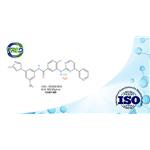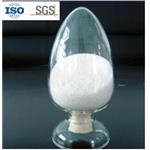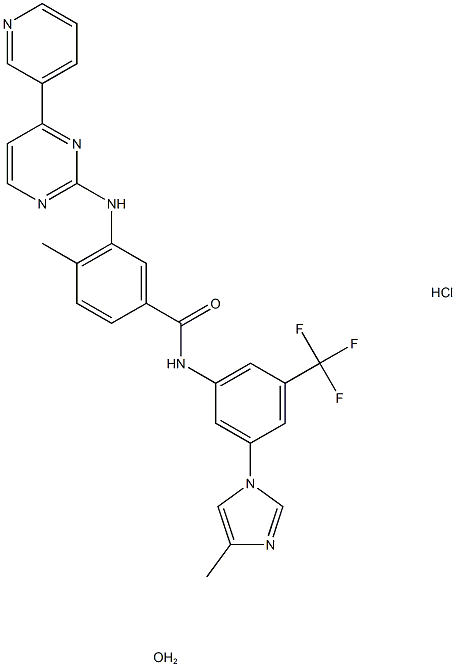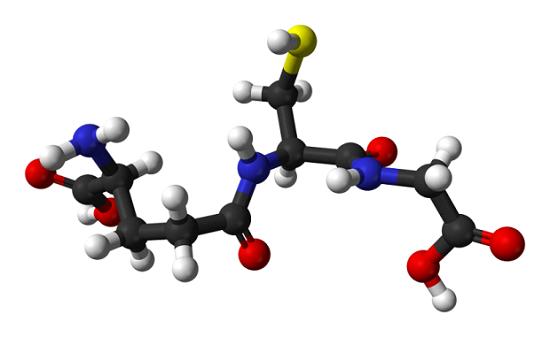Side effects of Nilotinib Hydrochloride Monohydrate
A drug used to treat certain types of chronic myelogenous leukemia that are Philadelphia chromosome positive. It is also being studied in the treatment of other types of cancer. Nilotinib hydrochloride monohydrate blocks BCR-ABL and other proteins, which may help keep cancer cells from growing.
Biological activity
Nilotinib binds to and stabilizes the inactive conformation of the kinase domain of Abl protein. In vitro, nilotinib inhibited Bcr-Abl mediated proliferation of murine leukemic cell lines and human cell lines derived from Ph+ CML patients. Under the conditions of the assays, nilotinib was able to overcome imatinib resistance resulting from Bcr-Abl kinase mutations, in 32 out of 33 mutations tested. In vivo, nilotinib reduced the tumor size in a murine Bcr-Abl xenograft model. Nilotinib inhibited the autophosphorylation of the following kinases at IC50 values as indicated: Bcr-Abl (20-60 nM), PDGFR (69 nM) and c-Kit (210 nM). Nilotinib is currently being trialed in people with Parkinson's disease, as it appears to be able to halt progression of the disease and even improve their symptoms.
Adverse Effects
The drug also has a number of adverse effects typical of anti-cancer drugs: a headache, fatigue, gastrointestinal problems such as nausea, vomiting, diarrhea and constipation, muscle and joint pain, rash and other skin conditions, flu-like symptoms, and reduced blood cell count. Less typical side effects are those of the cardiovascular system, such as hypertension (high blood pressure), various types of arrhythmia, and prolonged QT interval.
Mechanism of action
Interaction of nilotinib with OATP1B1 and OATP1B3 may alter its hepatic disposition and can lead to transporter mediated drug-drug interactions. Nilotinib is an inhibitor of OATP-1B1 transporter but not for OATP-1B3. Main metabolic pathways identified in healthy subjects are oxidation and hydroxylation. Nilotinib is the main circulating component in the serum. None of the metabolites contributes significantly to the pharmacological activity of nilotinib.
);Related articles And Qustion
See also
Lastest Price from Nilotinib Hydrochloride Monohydrate manufacturers

US $0.00-0.00/kg2024-09-14
- CAS:
- 923288-90-8
- Min. Order:
- 1kg
- Purity:
- 99%,single impurity<0.1
- Supply Ability:
- 1 ton

US $0.00/g2024-09-11
- CAS:
- 923288-90-8
- Min. Order:
- 1g
- Purity:
- More Than 99%
- Supply Ability:
- 100kg/Month



